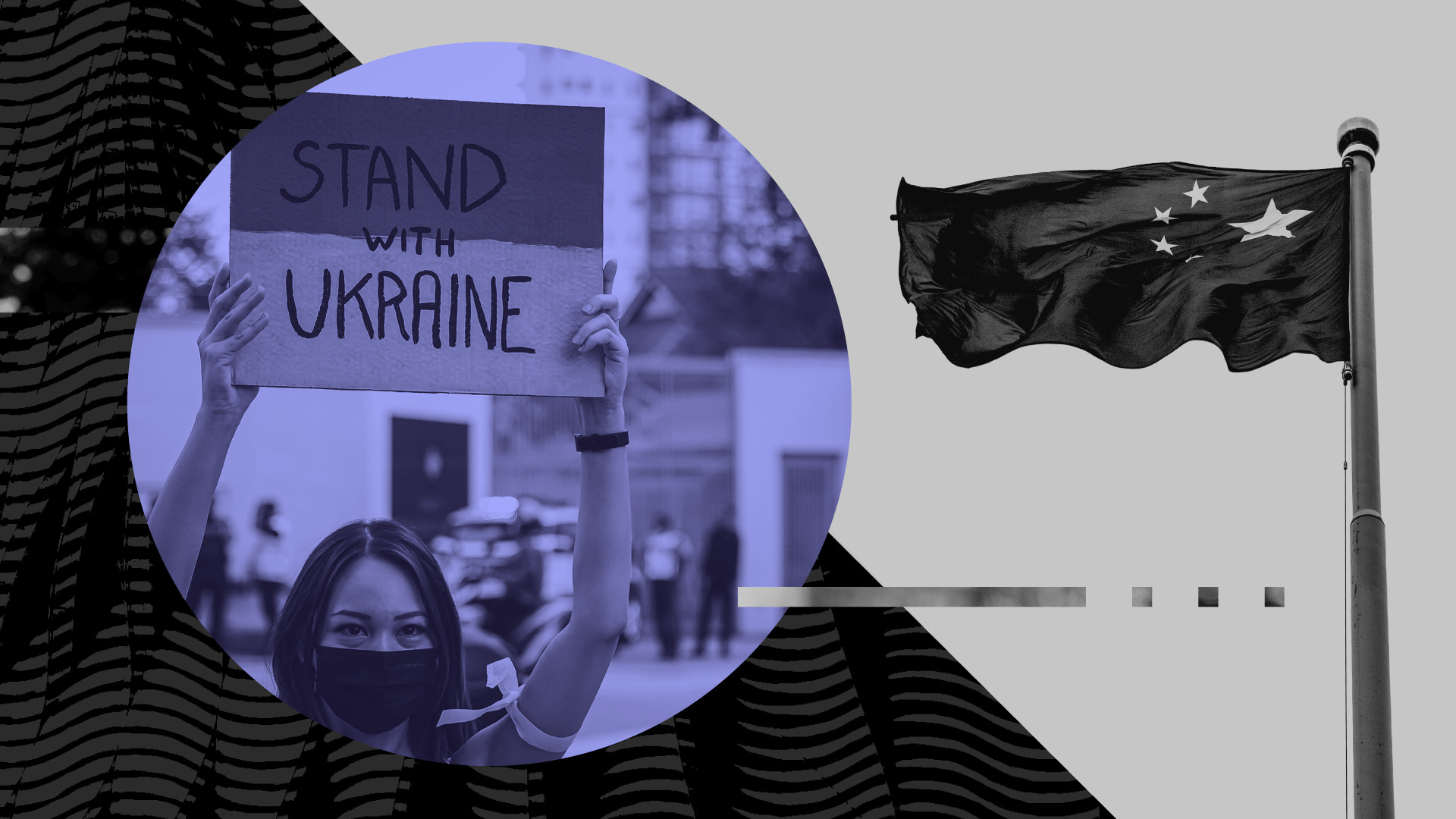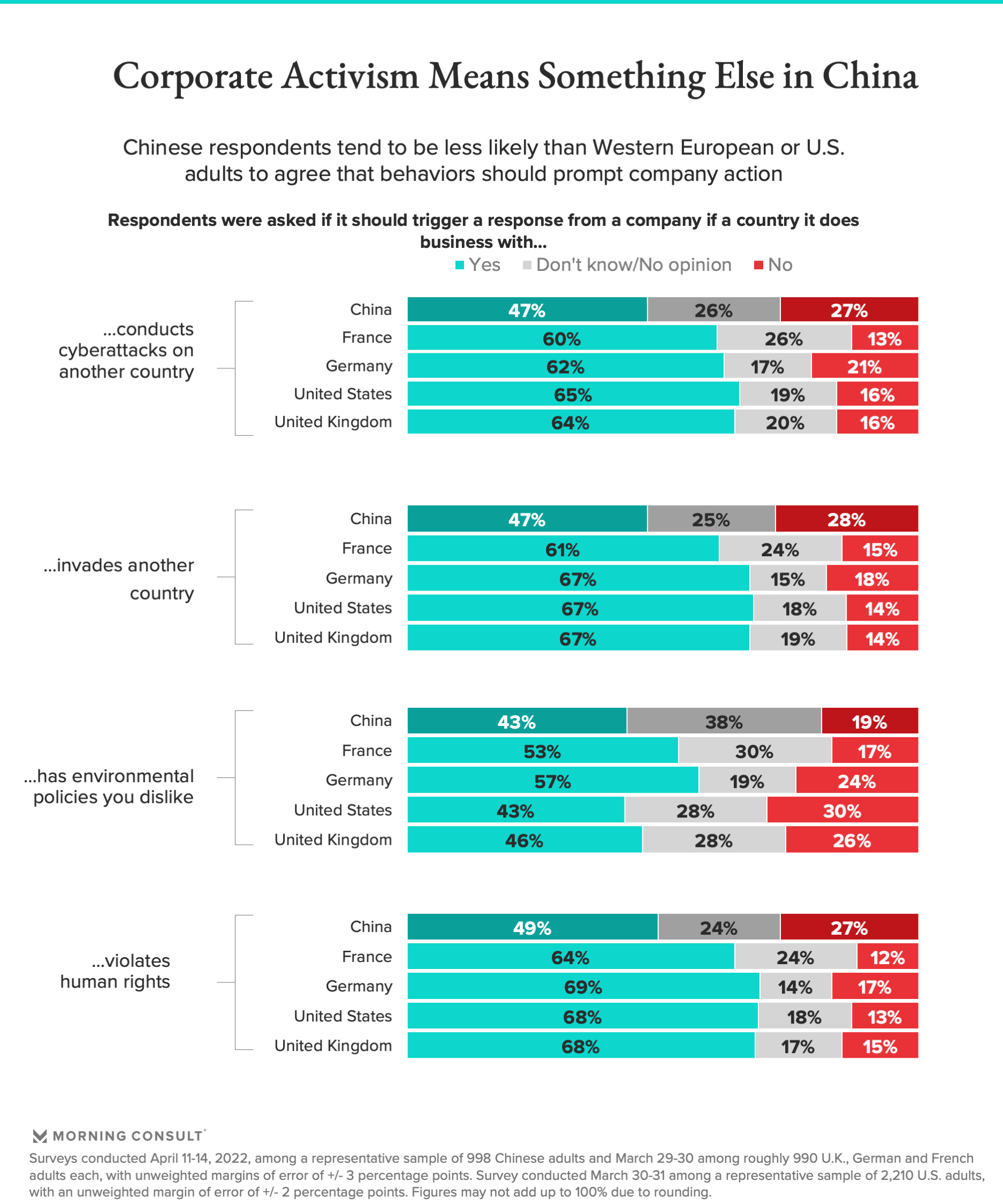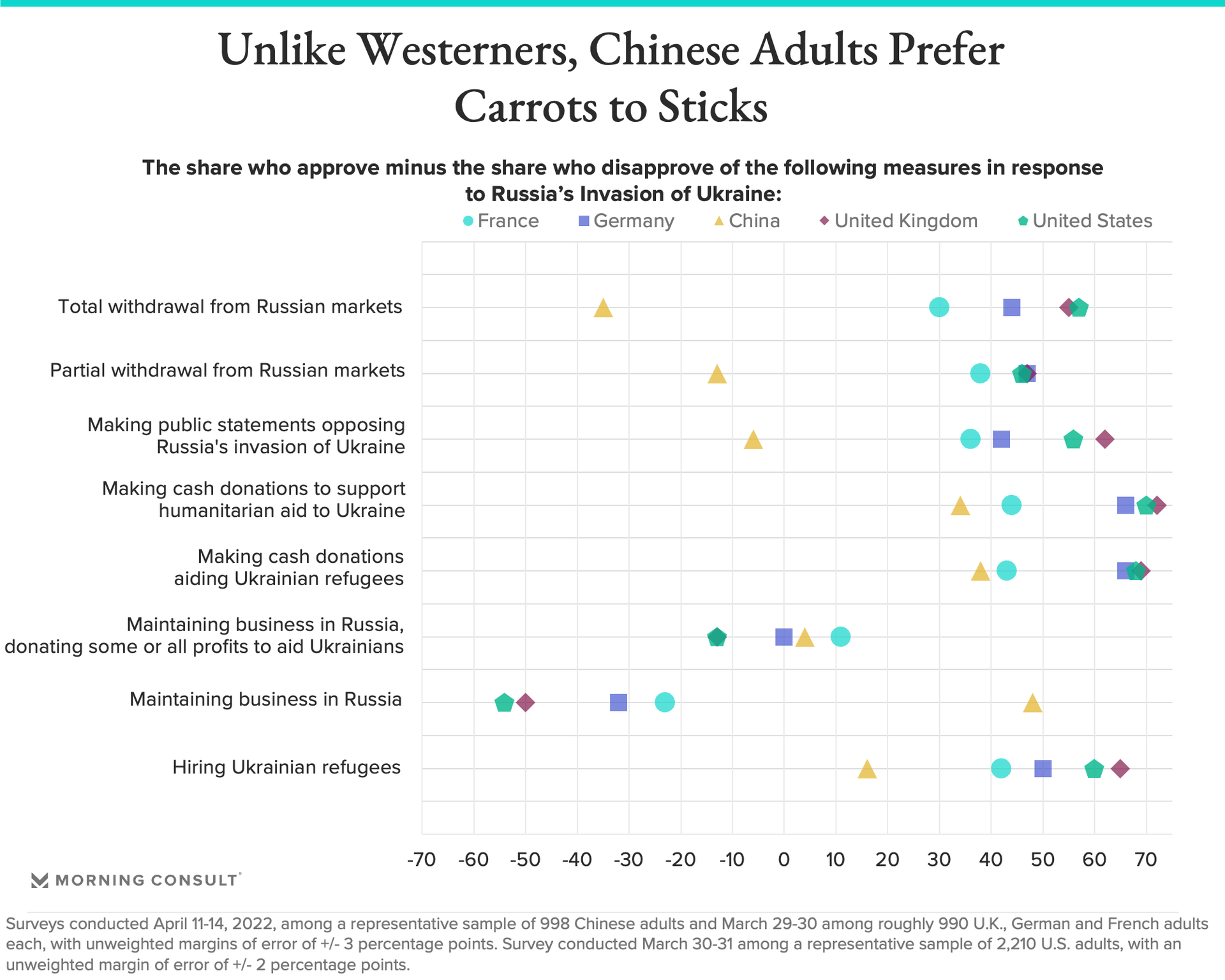Corporate Activism With Chinese Characteristics: Positive Over Punitive

Key Takeaways
A plurality of Chinese consumers say they want companies to respond to global events in ways that mirror their customers’ values.
But they are less likely than their Western counterparts to identify what should trigger those responses: Smaller shares of Chinese adults are willing to agree that certain behaviors — such as invasion of or cyberattack on another country — should prompt corporate action.
On Russia’s invasion of Ukraine, Chinese consumers favor positive measures (like donations to aid Ukrainians) over punitive measures such as market withdrawal.
As the threat of secondary sanctions intensifies, Chinese businesses operating in Russia and/or Ukraine must therefore walk a thin line. The only clear way forward in limiting reputational blowback among Chinese consumers is to focus on helping those affected by the conflict and avoid political entanglement.
Chinese views on corporate activism are less clear-cut than those in Europe and the United States
Corporate activism in China is fundamentally different than in Western Europe and North America: Western companies have made high-profile missteps when trying to understand Chinese sentiment around global events. But Chinese companies are not immune to blunders: Earlier this year, ride-hailing company Didi wound up reversing its decision to exit Russia amid public pressure to support the Kremlin during the Ukraine conflict. At the same time, sanctions and the risk of their continued tightening are making Chinese companies leery of Russian and Ukrainian markets.
Morning Consult asked Chinese, European, and U.S. adults if they thought companies should respond to global events in general, and how they should respond to the Russia-Ukraine crisis in particular. Chinese consumers agree with their Western European and U.S. counterparts that companies should help Ukrainians, but disagree on whether they should penalize Russia for invading Ukraine.
Chinese adults prefer that companies take a principled stand, but they balk at drawing red lines
Chinese consumers are about as likely as Western European and U.S. respondents to say they want companies to react to global events in ways that reflect their customers’ values.
More than 2 in 5 Chinese, American and European Adults Want Company Responses to Reflect Customer Values
But when asked what types of events should trigger a principled reaction, fewer Chinese consumers were willing to pinpoint when companies should respond. A plurality of Chinese respondents agreed that a company should take action if a country invaded or conducted cyberattacks on another country, had objectionable environmental policies or violated human rights by condoning the use of forced labor or repressing free speech. However, in most cases, U.S. and Western European adults were more likely to support taking action. The exception is environmental policies, where 43% of both Chinese and U.S. adults said businesses should respond.

Chinese consumers on the war in Ukraine choose positive over punitive
When it comes to Russia’s invasion of Ukraine, Chinese consumers diverge from Western Europeans and Americans. In contrast to the latter, Chinese consumers largely favor remaining in Russia, and have a net negative response to public opposition to the war or withdrawal from Russian markets. However, respondents are largely on the same page in supporting humanitarian actions like donating to Ukrainian causes and providing aid to refugees.

The Chinese reluctance to criticize Russia or encourage companies to withdraw reflects Chinese views of Russia in general, which remain rosy.
Chinese Views of Russia Are Overwhelmingly Positive, in Contrast to Opinions in Europe and the United States
This result is in line with other data on Chinese views of the conflict from the Carter Center, which shows both high Chinese support for Russia and high support for Chinese involvement in brokering peace.
Chinese businesses walk a thin line
For multinationals whose investors and customer bases are primarily located in Europe and the United States, the path forward is much clearer: Withdrawal is the safest option both from a compliance and public relations standpoint. Chinese consumers, on the other hand, favor positive actions like humanitarian aid over punitive measures such as withdrawal or public opposition. As the risk of secondary sanctions increases, however, Chinese companies may need to justify drawdowns to a skeptical public. Their best bet is to place a strong focus on the positive actions they are taking to support a resolution to the conflict and assist those affected by the war.
Sonnet Frisbie is the deputy head of political intelligence and leads Morning Consult’s geopolitical risk offering for Europe, the Middle East and Africa. Prior to joining Morning Consult, Sonnet spent over a decade at the U.S. State Department specializing in issues at the intersection of economics, commerce and political risk in Iraq, Central Europe and sub-Saharan Africa. She holds an MPP from the University of Chicago.
Follow her on Twitter @sonnetfrisbie. Interested in connecting with Sonnet to discuss her analysis or for a media engagement or speaking opportunity? Email [email protected].